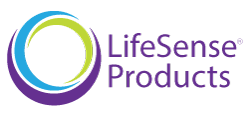As we continue with our Technical series, in this post we focus on Drug and Nutrient Delivery.
Bioavailability (uptake of an active drug or nutrient by our organs) is poor for many drugs and nutrients. Approximately 40% of the currently marketed formulations and more than 70% of pipeline molecules from top pharmaceutical companies today contain drugs that are poorly soluble.
Due to their unique chemical properties, medium chain triglyceries (MCTs), Medium Chain Fatty Acids (MCFA), and derivatives thereof, have been used to improve the delivery of oral and topical drugs and nutraceuticals, when specially formulated.
Below are results and conclusions from recent studies and review articles:
MCTs may improve drug dissolution, intestinal solubility, nutrient permeability, efflux and pre-systemic metabolism. For the increasing classes of poorly water soluble lipophilic (lipid-loving) drugs, MCTs offer increases in dissolution and apparent intestinal solubility1 to increase bioavailability.
MCTs and their derivatives can also increase bioavailability by forming self-emulsifying drug delivery systems (SEDDS) and self-nanoemulsifying drug delivery systems (SNEDDS) with drugs and nutrients 2-4.
Some lipid Nanocapsule systems with MCTs and their monoglyceride derivatives, can also have anti-microbial properties5. A nanocapsule is a nanoscale shell made from a nontoxic polymer. They are vesicular systems made of a polymeric membrane which encapsulates an inner liquid core at the nanoscale. Nanocapsules have many uses, including promising medical applications for drug delivery, food enhancement, nutraceuticals, and for self-healing materials. The benefits of encapsulation methods are for protection of these substances to protect in the adverse environment, for controlled release, and for precision targeting.
Conclusions: MCTs and their derivatives are increasingly used to increase oral bioavailability and drug absorption. However, companies claiming to use MCTs to increase bioavailability of nutrients must form a correct SEDDS (Lipid-based formulation – Self emulsifying Drug Delivery Systems) formulation, and provide direct evidence of increased bioavailability versus the nutrient alone; and demonstrate that the increased bioavailability is evident even when the final product is stored over its shelf life.
Lipid formulations (with MCT oil) are an attractive way for enhancing the solubility and bioavailability of poorly water-soluble drugs.
References:
1. Feeney, O.M., et al., 50 years of oral lipid-based formulations: Provenance, progress and future perspectives. Advanced Drug Delivery Reviews, 2016. 101: p. 167-194.
2. Niu, Z., et al., Lipid-based nanocarriers for oral peptide delivery. Advanced Drug Delivery Reviews, 2016. 106, Part B: p. 337-354.
3. Rao, P.J. and H. Khanum, A green chemistry approach for nanoencapsulation of bioactive compound – Curcumin. LWT - Food Science and Technology, 2016. 65: p. 695-702.
4. Tripathi, C.B., et al., Systematic development of optimized SNEDDS of artemether with improved biopharmaceutical and antimalarial potential. Drug Deliv, 2016. 23(9): p. 3209-3223.
5. Umerska, A., et al., Antibacterial action of lipid nanocapsules containing fatty acids or monoglycerides as co-surfactants. Eur J Pharm Biopharm, 2016. 108: p. 100-110.

